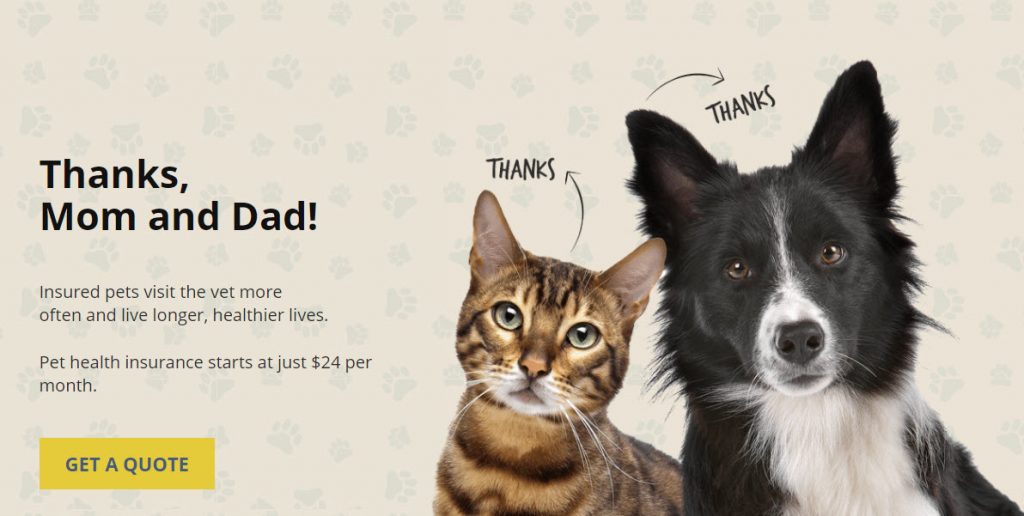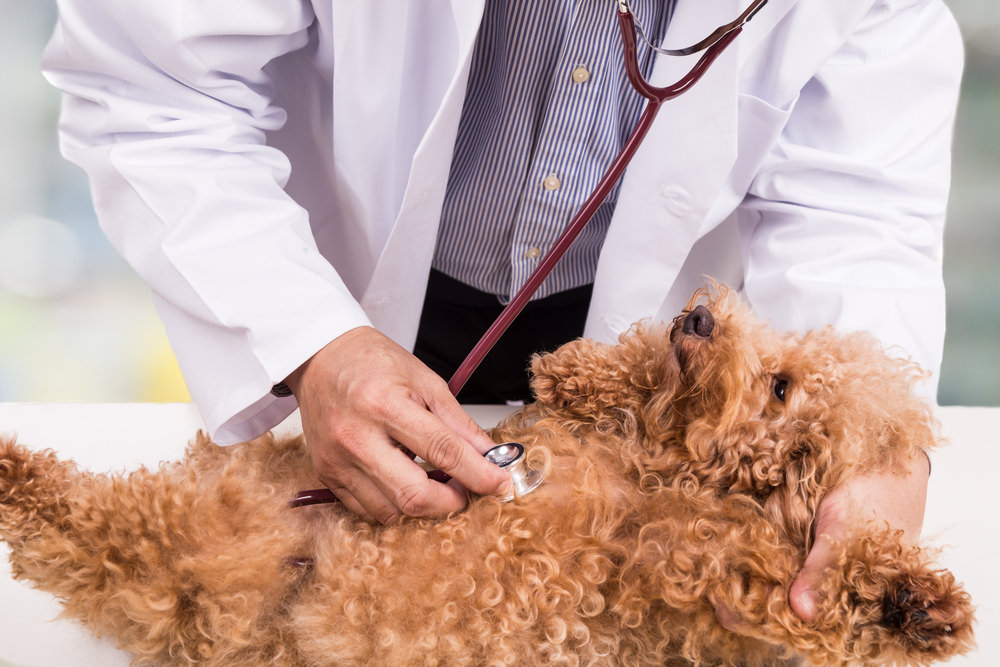Gallstones in Dogs
Free Pet Insurance Comparison
Compare Quotes From Top Companies and Save
Secured with SHA-256 Encryption
Dr. Pippa Elliott BVMS, MRCVS
Veterinarian
Dr Pippa Elliott BVMS, MRCVS is a veterinarian with over 30 years of experience in companion animal practice. In 1987 she graduated from the University of Glasgow, with a degree in veterinary medicine and surgery. She works at Blythwood Vets and the People’s Dispensary for Sick Animals (PDSA). Pippa is an advocate of Fear-Free Practice, an animal addict, and a veterinary writer. She is also w...
Veterinarian
UPDATED: Jan 8, 2024
Pet Insurance U receives compensation from the third parties included on this site. This includes payment for clicks from our site to insurance providers’ sites and quote requests generated. Our rankings and reviews are not affected by payments from the insurance companies. The compensation we receive allows the site to be free and regularly updated. Our goal is to review every pet insurance provider, but not all companies are listed on the site.
And many of the companies we review do not pay us anything. We simply rate, compare and review their plan because we feel it will be valuable to you. Our reviews are guaranteed to be unbiased, professional and advertising compensation does not influence rankings.
We are a free online resource for anyone interested in learning more about pet insurance. Our goal is to be an objective, third-party resource for everything pet insurance related. We update our site regularly, and all content is reviewed by pet insurance experts.
UPDATED: Jan 8, 2024
Pet Insurance U receives compensation from the third parties included on this site. This includes payment for clicks from our site to insurance providers’ sites and quote requests generated. Our rankings and reviews are not affected by payments from the insurance companies. The compensation we receive allows the site to be free and regularly updated. Our goal is to review every pet insurance provider, but not all companies are listed on the site.
And many of the companies we review do not pay us anything. We simply rate, compare and review their plan because we feel it will be valuable to you. Our reviews are guaranteed to be unbiased, professional and advertising compensation does not influence rankings.
On This Page
Gallstones in dogs is a medical condition that is caused by stones forming in the gall bladder.
Gallstones or choleliths are solid particles that usually contain bile, cholesterol, bacteria, proteins and calcium salts. Gallstones can vary in size, going from a small particle to large stones, which can cause blockage in the gal.
The gallbladder is an organ located between the lobes of the liver, which primary function is storing, concentrating and releasing bile. The bile functions include killing microorganisms such as fungus and bacteria, neutralizing potentially toxic stomach acids and stimulating fat digestion.
The medical term for gallstones, Cholelithiasis, can cause bile blockage which can lead to serious health issues if left untreated.
Need Pet Insurance?
FACT: Pet insurance pays up to 90% of vet bills when your pet is sick or injured!
Symptoms of Dog Gallstones
The symptoms of gallstones range greatly from not being apparent at all to being pretty severe.
Larger gallstones can lead to more serious health issues as they can cause blockages which will then allow bile to enter the abdomen which can be life-threating.
The most common symptoms of gallstones in dogs include the following:
- Weakness and lethargy (lack of energy)
- Loss of appetite
- Vomiting
- Chills
- Abdominal tenderness
- Abdominal pain
- Jaundice (yellowing of skin or eyes)
- Fever
- Change in behavior – aggressive when touched
- Blood or pain while urinating
Related: 10 Things You Must Know Before You Buy Pet Insurance
Enter your ZIP code below to view companies that have cheap pet insurance rates.
Secured with SHA-256 Encryption
Dog Breeds That Are Prone to Gallstones

There are a few breeds that seem to be pre-disposed to gallstones:
What Causes Gallstones in Dogs?
Some of the common causes of gallstones in dogs are the following:
- A high concentration of gallbladder bile
- Nutrient deficiencies (e.g. taurine deficiency)
- Environmental toxins
- Decreased bile flow
- Changes to the lining of the gallbladder
Diagnosis of Gallstones
As soon as you notice any of the symptoms of gallstones in your dog, it important to take your dog to the vet right away.
Your vet will want to know the symptoms that have occurred in your dog and if there have been any behavioral changes.
Your vet will also feel around your dog’s abdomen to see if there is any pain or tenderness there and look for some of the signs of jaundice.
X-rays can help to see a gallstone if it is large enough but they are not always visible.
Blood work will be taken and your dog’s liver enzyme levels will be checked to see if they are elevated due to gallstones or from the excess of bile in the abdomen.
Because gallstones are hard to diagnose in the early stages, it usually takes a rupture to conclude the diagnosis that there was a gallstone in the first place.
Real Cost Savings from PetFirst Clients

Luna
PetFirst saved his parents
$6,712
A happy energetic Luna one morning couldn’t hold her food down. After months of multiple costly vet visits to specialists and an endoscopy, the problem was discovered and fixed. Luna put 22 pounds back on in no time and her parents were grateful for having PetFirst by their side to pay the bills.
Enter your ZIP code below to view companies that have cheap pet insurance rates.
Secured with SHA-256 Encryption
Treatment of Gallstones
Treatment of gallstones can vary depending on the severity of the condition.
Small gallstones can sometimes be dissolved with medication which is typically followed by antibiotics to ward off infection.
Further, specific vitamins and nutrients might be recommended to help combat any deficiencies that might have caused the gallstones to form.
If your dog has jaundice, the usual treatment is an IV of the vitamin K-1 to help ward off the condition.
If the liver has been compromised, Vitamin E can help the organ to function normally again.
A diet of high-protein and reduced-fat is typically recommended for dogs with gallbladder issues.
In the most severe case, the removal of the gallbladder (cholecystectomy) might be needed.
It is more common today, vets will use a laparoscope to remove the gallstones which is less invasive and the recovery is much easier.
Can Pet Insurance Help With Gallstones in Dogs?
The cost of treating gallstones can range anywhere from $1,000 to $6,500 depending on the treatment necessary.
If you already have pet insurance, the treatment, surgery (if needed), testing and recovery can all be covered for up to 90% of the cost.
Plans like Healthy Paws and Embrace will help cover all the costs to treat your dog, but also further treatment if your dog develops gallstones again (hopefully not!)
However, if your dog develops gallstones and then you enroll in pet insurance to help pay for the condition, the insurance won’t cover it because the gallstones are now considered pre-existing.
This is why it’s best to insure your dogs while they are young before any condition occurs. Or, if you have a certain breed of dog that is pre-disposed to some common health conditions.
Recovery and Management of Gallstones
If your dog had gall bladder surgery, your dog must be watched carefully and allowed only very minimal exercise to avoid the incision from breaking.
An Elizabethan collar is usually recommended to discourage your dog from licking the incision.
Further medication will be needed to avoid infection and to help with your dog’s pain.
With most dogs, a subscribed diet that is high in protein and low in fat can help reduce the chance of the gallstones reoccurring.
Just like any other health issue, if you see anything abnormal occurring in your dog, take your dog to the vet right away.
If you would like to learn more about other health concerns that can occur with your dog, our dog health glossary is a good place to start.
Other articles you may find helpful:
Is Exotic Pet Insurance Necessary?
The Best Pet Insurance By State
Fun Facts, Dog FAQ, And Unsolicited Dog Advice
5 Training Commands to Save Your Dog’s Life
The Ultimate Guide to Safe Foods for Dogs
We get it, your dog is like your child and when your puppy or dog has health problems it is scary. Luckily there is pet insurance companies that will help you pay for any veterinarian care they made need. Checkout the best puppy and dog pet insurance companies and learn about common puppy health issues and ailments in older pets.
Common Health Problems:
Chronic Active Hepatitis in Dogs
Cruciate Ligament Tear in Dogs
Degenerative Myelopathy | Spinal Cord Disease In Dogs
Dementia in Dogs | Canine Cognitive Dysfunction
Dog Comedones (Schnauzer Bumps)
Dog Diarrhea: What Can You Do To Help?
Gallbladder Obstruction in Dogs
Heart Murmurs In Dogs | How To Identify Them
Intervertebral Disc Disease In Dogs
Nasal Solar Dermatitis In Dogs
Progressive Retinal Atrophy In Dogs
The Dog Flu – Symptoms & Treatment for Canine Influenza


Frequently Asked Questions
What are gallstones in dogs, and how do they occur?
Gallstones in dogs are solid particles formed in the gallbladder, containing bile, cholesterol, bacteria, proteins, and calcium salts. They can vary in size and may lead to serious health issues if left untreated.
What are the symptoms of gallstones in dogs?
Symptoms range from mild to severe and may include abdominal pain, behavioral changes, and in severe cases, jaundice. Larger stones can cause blockages, posing a serious threat to a dog’s health.
Are there specific dog breeds prone to gallstones?
Yes, some breeds are predisposed to gallstones. Consult with your veterinarian to understand if your dog’s breed is at higher risk.
What causes gallstones in dogs?
Common causes include bacterial infection, changes in bile composition, and genetic factors. Dietary factors and underlying health conditions may also contribute.
How are gallstones diagnosed in dogs?
Diagnosis involves a veterinary examination, abdominal palpation, observation of symptoms, and sometimes X-rays and blood work to check liver enzyme levels.
What is the treatment for gallstones in dogs?
Treatment varies based on severity and may include medication, dietary changes, and, in severe cases, gallbladder removal (cholecystectomy). Laparoscopic procedures are commonly used for less invasive treatment.
Can pet insurance help cover the costs of treating gallstones in dogs?
Yes, pet insurance, such as plans from companies like Healthy Paws and Embrace, can cover up to 90% of vet bills, including treatment, surgery, testing, and recovery.
Is there a waiting period for pet insurance coverage on pre-existing conditions like gallstones?
Yes, if your dog develops gallstones and then you enroll in pet insurance, the condition is considered pre-existing, and the insurance won’t cover it. It’s recommended to insure your dog early to avoid this limitation.
Enter your ZIP code below to view companies that have cheap pet insurance rates.
Secured with SHA-256 Encryption
Dr. Pippa Elliott BVMS, MRCVS
Veterinarian
Dr Pippa Elliott BVMS, MRCVS is a veterinarian with over 30 years of experience in companion animal practice. In 1987 she graduated from the University of Glasgow, with a degree in veterinary medicine and surgery. She works at Blythwood Vets and the People’s Dispensary for Sick Animals (PDSA). Pippa is an advocate of Fear-Free Practice, an animal addict, and a veterinary writer. She is also w...
Veterinarian
We are a free online resource for anyone interested in learning more about pet insurance. Our goal is to be an objective, third-party resource for everything pet insurance related. We update our site regularly, and all content is reviewed by pet insurance experts.


